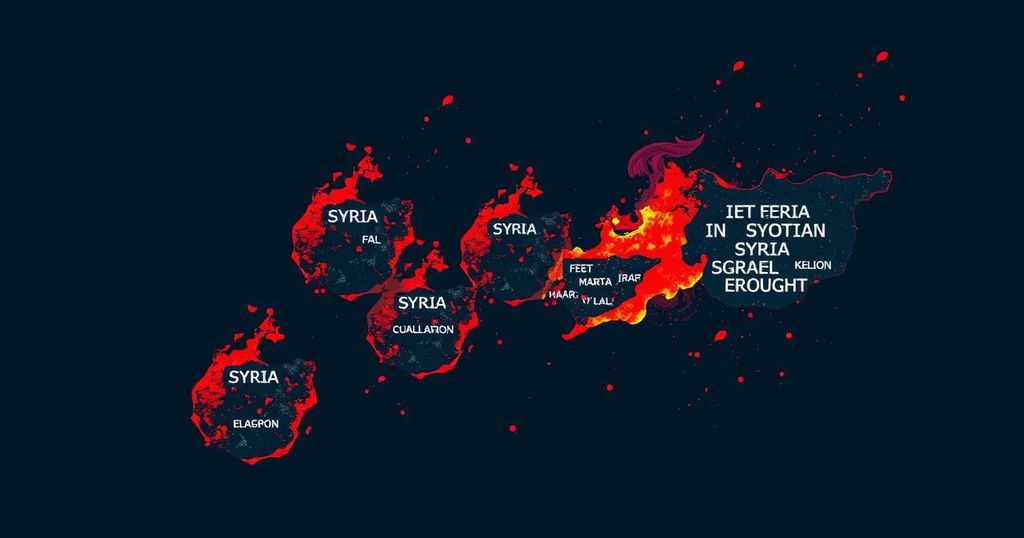The recent flare-up in the Syrian civil war poses strategic dilemmas for Israel, caught between opposing extremist factions. As Turkish-backed and Iranian-backed groups clash, Israel aims to maintain a neutral stance to protect its security. While the weakening of Assad may benefit Israel, a complete overthrow could lead to instability. The implications of these dynamics extend into broader regional conflicts and power relationships.
The resurgence of hostilities in Syria has provoked critical analysis concerning its implications for Israel. As sectarian forces vie for standing in the region, Israel faces the complex question of whether it prefers Iranian-backed Shia extremists or Turkish-supported Sunni jihadists operating nearer its borders. This dichotomy elucidates Israel’s cautious approach, where it aims to maintain a neutral stance unless its security interests are directly jeopardized.
The renewed fighting commenced on November 27, with al-Qaeda affiliates and Turkish-aligned groups launching assaults on Aleppo—a strategic northern city. The conflict expands the repercussions set in motion by Hamas’s recent attacks against Israel, which forced Hezbollah to reevaluate its operations and ultimately opened an opportunity for the Syrian opposition.
Historically, the Assad regime has been supported by Iran, Hezbollah, and Russia, all of whom are experiencing significant strains due to other global commitments, notably the conflict in Ukraine. This situation presents an opportunistic moment for the Syrian rebels, aiming to exploit weakened allies. Nonetheless, as Israel navigates this precarious landscape, it seeks an ambiguous balance: a diminished but stable Syria that is less aligned with Iran, without the risk of chaos that could accompany regime change.
Turkey’s motivations are similarly intertwined, as President Erdogan’s backing of militant factions is aimed at facilitating refugee repatriation and limiting Kurdish autonomy. Iran, on the other hand, faces strategic losses that threaten its supply lines to Hezbollah if Assad falls from power. Meanwhile, Russia, which has vested interests in maintaining its naval presence, remains committed to supporting Assad against opposition forces to avoid a repeat of its waning influence in the Middle East.
In summary, the current dynamics in Syria present a complex geopolitical puzzle affecting Israel and other regional players. Israel’s ideal scenario encompasses a weak Assad regime, provided it does not collapse entirely, to prevent further destabilization in a volatile neighborhood where any shift in power can have far-reaching consequences.
The ongoing Syrian civil war, which began in 2011, has been characterized by a multi-faceted struggle involving various domestic and foreign actors, each with differing ideological positions and objectives. The recent resurgence of conflict has drawn renewed attention from stakeholders, particularly Israel, which is vigilant about Iranian influence and the positioning of hostile forces along its northern border. The escalation aligns with previous tensions exacerbated by Hamas’s recent aggressions against Israel and the subsequent response of Hezbollah. The implications of this renewed conflict resonate beyond Syria, affecting regional power balances and international relationships.
The current situation in Syria underscores the complexities faced by Israel and its allies amid a struggle for influence in the region. Israel’s strategy hinges on preventing the emergence of a chaos that could ensue from a toppled Assad regime, while Turkey and Iran have their reasons for involvement that complicate the geopolitical landscape further. The interplay of these ambitions will undeniably shape the future stability and security of not just Syria, but the broader Middle East.
Original Source: www.jpost.com






